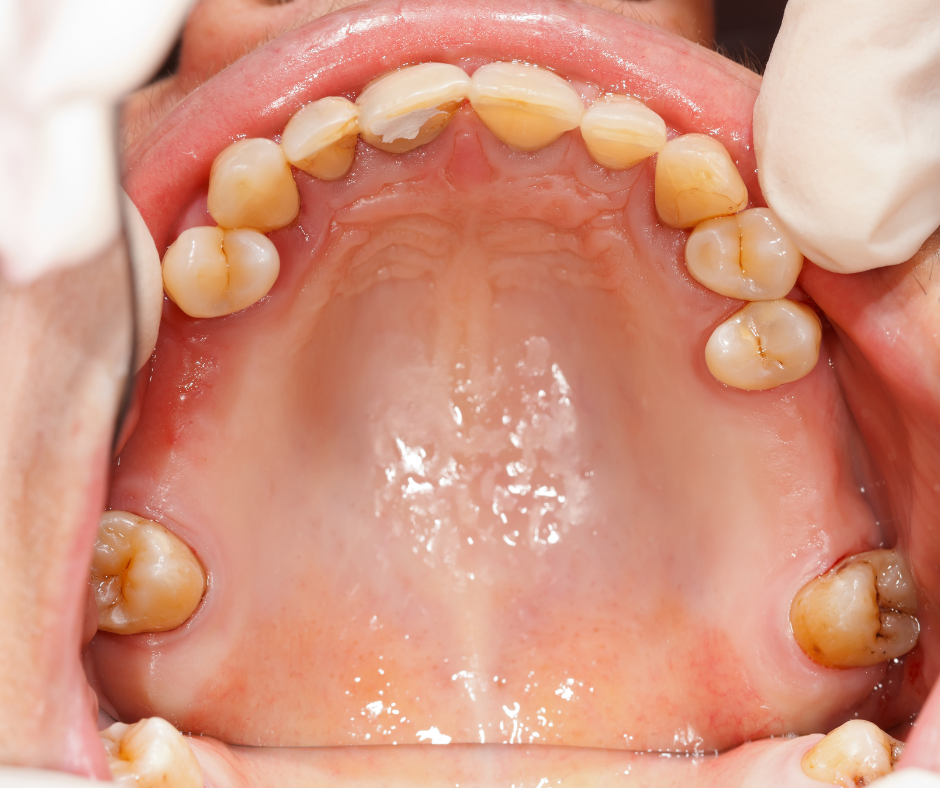
Partial dentures are a common option for replacing missing teeth. In fact, they can be a great alternative to bridges or implants if you have a less severe case of tooth loss and have exhausted all other treatment options. If you are someone who has been planning to get dentures but are still unsure about full and partial dentures, what the process entails and how it is different from other types of dental implants and bonding, you’re in luck. This blog post will give you an overview of partial dentures and talk about how they work.

How Do Partial Dentures Work?
Partial dentures work by replacing the missing teeth with artificial substitutes. These can look, feel and function like natural teeth, so they’re often a good choice for people who are nervous about wearing a complete set of dentures.
The process begins with an examination to see if you are a candidate for Partial Dentures. You will be asked about your health history, current dental health, and any concerns you may have about wearing a full set of dentures.
Your dentist will first make an impression of your mouth and then use this to create a model of your mouth that they can use to create partial dentures.
The process for making partial dentures is similar to how it is done for full dentures, except that it takes less time because there’s less work involved in creating them. If you have any questions about whether partial dentures are right for you, ask your dentist or hygienist for more information or advice on how to proceed.
Partial Dentures vs. Full Dentures
Thinking about when dentures are necessary or what dentures you should go for? Well, this section might just help you out!
Denture-making is a highly specialized craft; a dentist’s full set of dentures are custom-made from impressions taken from the patient’s mouth. Depending on how many teeth the patient has lost and their oral health, the dentist determines what type of denture is most suited to the situation. For example, if someone is missing several teeth in a row but is otherwise healthy, full dentures may be an ideal solution. However, partial dentures may be just as practical if someone only has one or two missing teeth along the dental arch.
Caring for your Partial Dentures
Partial dentures are an excellent option for some patients, so if you have a partial denture, there are several things you can do to make sure your teeth feel comfortable and healthy.
Here are some tips on how to care for your partial dentures:
Brush your teeth after each meal. This will help keep bacteria from building up in the gaps between your teeth and causing gingivitis.
Avoid smoking, chewing tobacco, and cigarettes. These substances contain harmful chemicals which can damage the enamel of your teeth.
Drink plenty of water to prevent dry mouth. A dry mouth can cause cracked lips, chapped skin, and swollen gums, which can irritate your gums or cause them to bleed when you brush them too aggressively.
Benefits of Getting Partial Dentures
The benefits of getting partial dentures include:
– After a short period of time, you will be able to have full function of your mouth.
– You will never have to worry about losing your teeth again.
– You can eat anything and everything with them!
– You will no longer be in pain or discomfort due to the loss of your teeth.
– They offer a completely natural look, enabling you to smile with confidence again.
Factors to Consider Before Getting Partial Dentures
While it may seem like a simple fix, there are many factors that go into making an excellent partial denture:
The fit: The fit between your mouth and the partial denture is one of the most important aspects of having a good-fitting partial. If they don’t fit properly, you won’t be able to chew or speak properly, which can lead to irritation and other problems.
The comfort: If you’re going through this process without pain management, then you need something that feels comfortable and doesn’t cause further damage to the mouth.
The aesthetics: Your dentist will help design a partial denture that looks great and suits your face shape and overall appearance.
The durability: Partial dentures are designed so that they last longer than full sets of real teeth, which mean that they’ll last longer than traditional dental bridges or implants.
Final Thoughts
There are a lot of different factors that determine whether or not you need to get dentures. The information we have just given is a good starting point, but it is not comprehensive. For example, the age of your teeth and your bone density are two other important factors.
To get a better idea of whether or not you will be a good candidate for this procedure, we encourage you to contact a dentist for a consultation. They can run some tests to see if dentures are the right option for you before they begin this process—and this will also enable them to provide you with the best results ultimately.



